In the wake of widespread discussions on race and inherent racism, companies and institutions have responded by making pledges to change long-standing logos and mascots that many have criticized as offensive to people of color.
Take a look at what has changed and what has not across the U.S.
Aunt Jemima
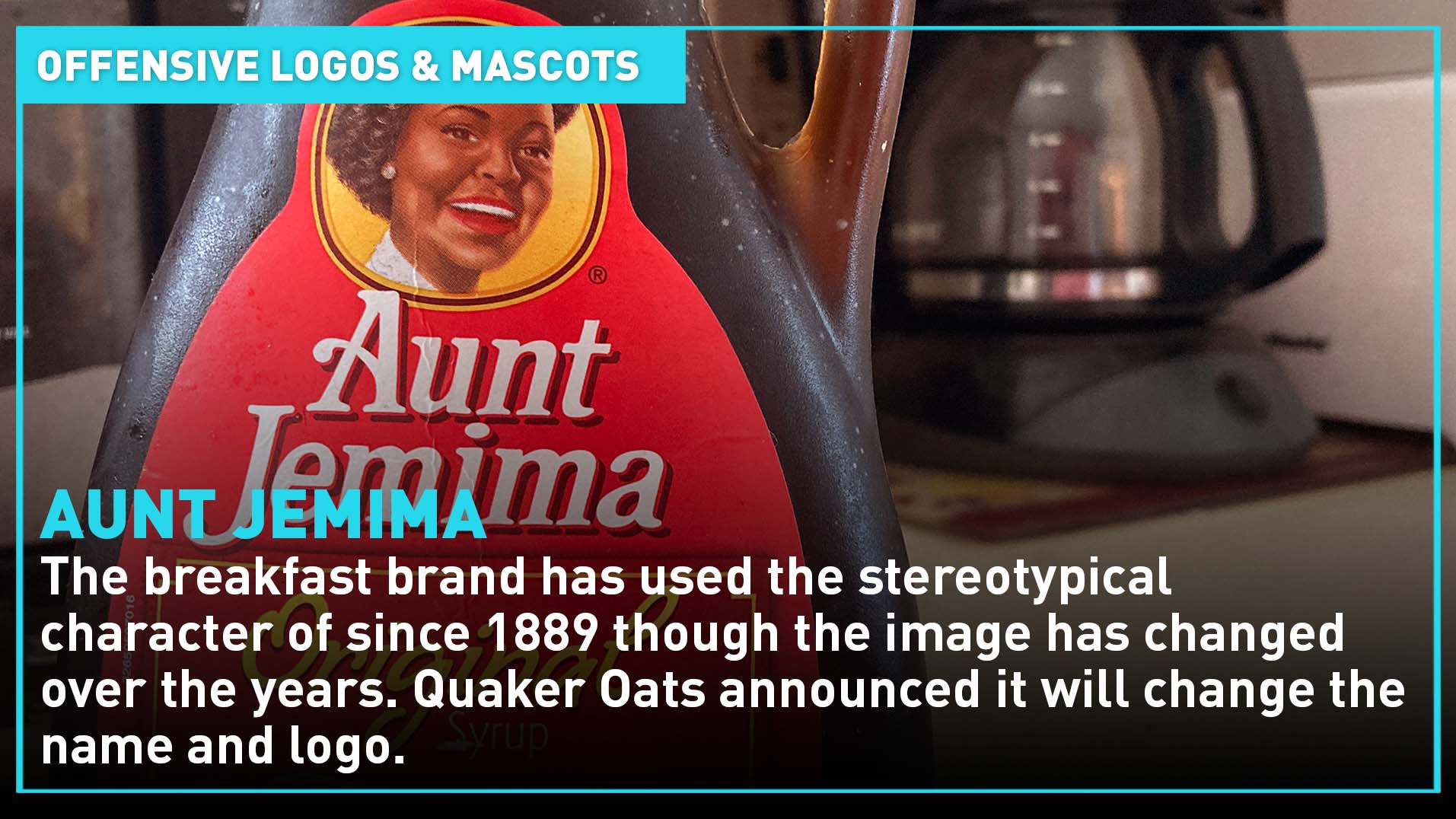
This breakfast food brand has used the character of Aunt Jemima since 1889 though the image has changed over the years. Parent company Quaker Oats has announced it will change the name and logo.
Uncle Ben’s
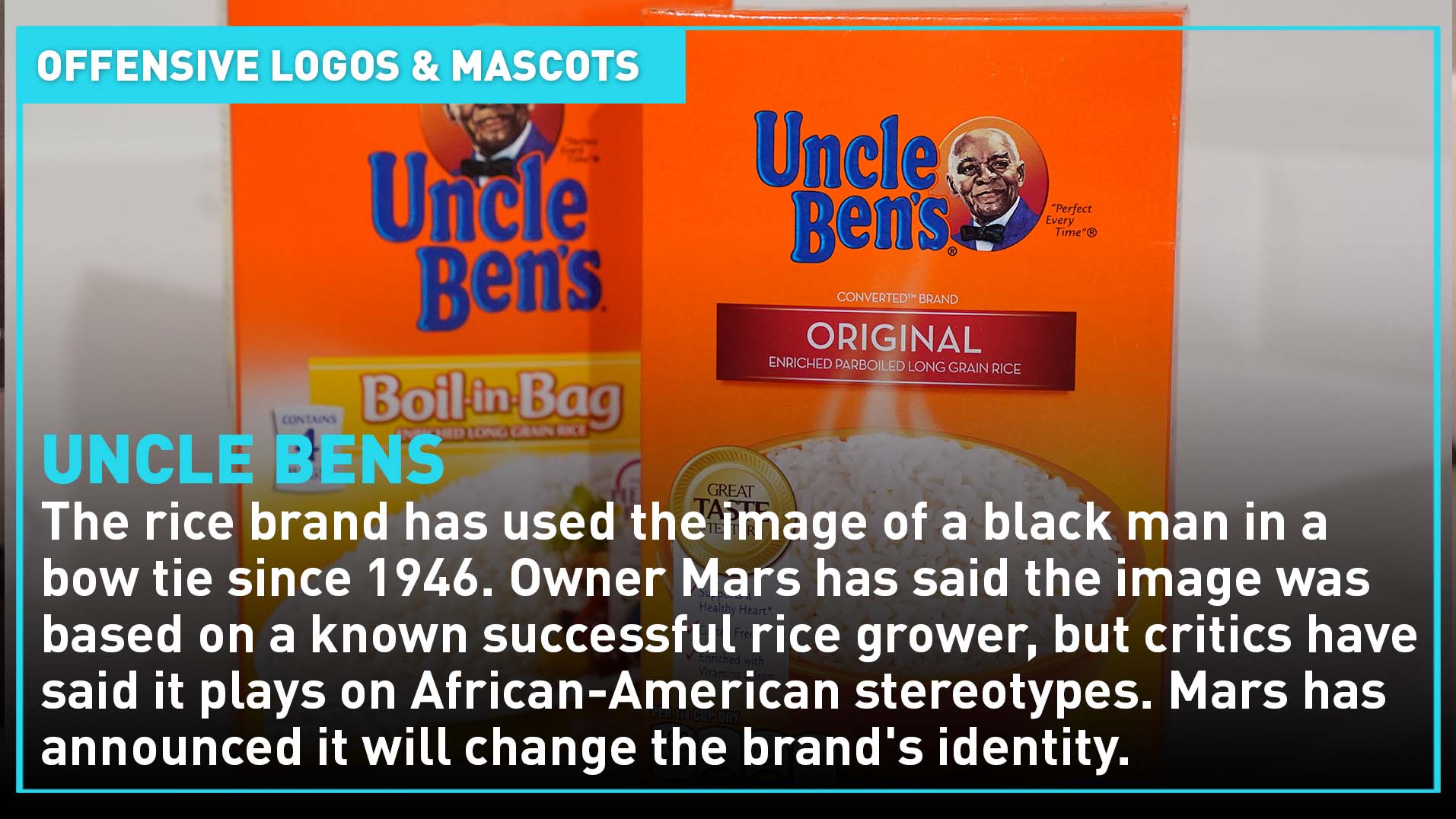
This rice brand has used the image of a black man in a bow tie since 1946. The owner Mars has said the image was based on a known successful rice grower but critics have said it plays on African-American stereotypes. Mars has announced it will change the brand’s identity.
Cream of Wheat
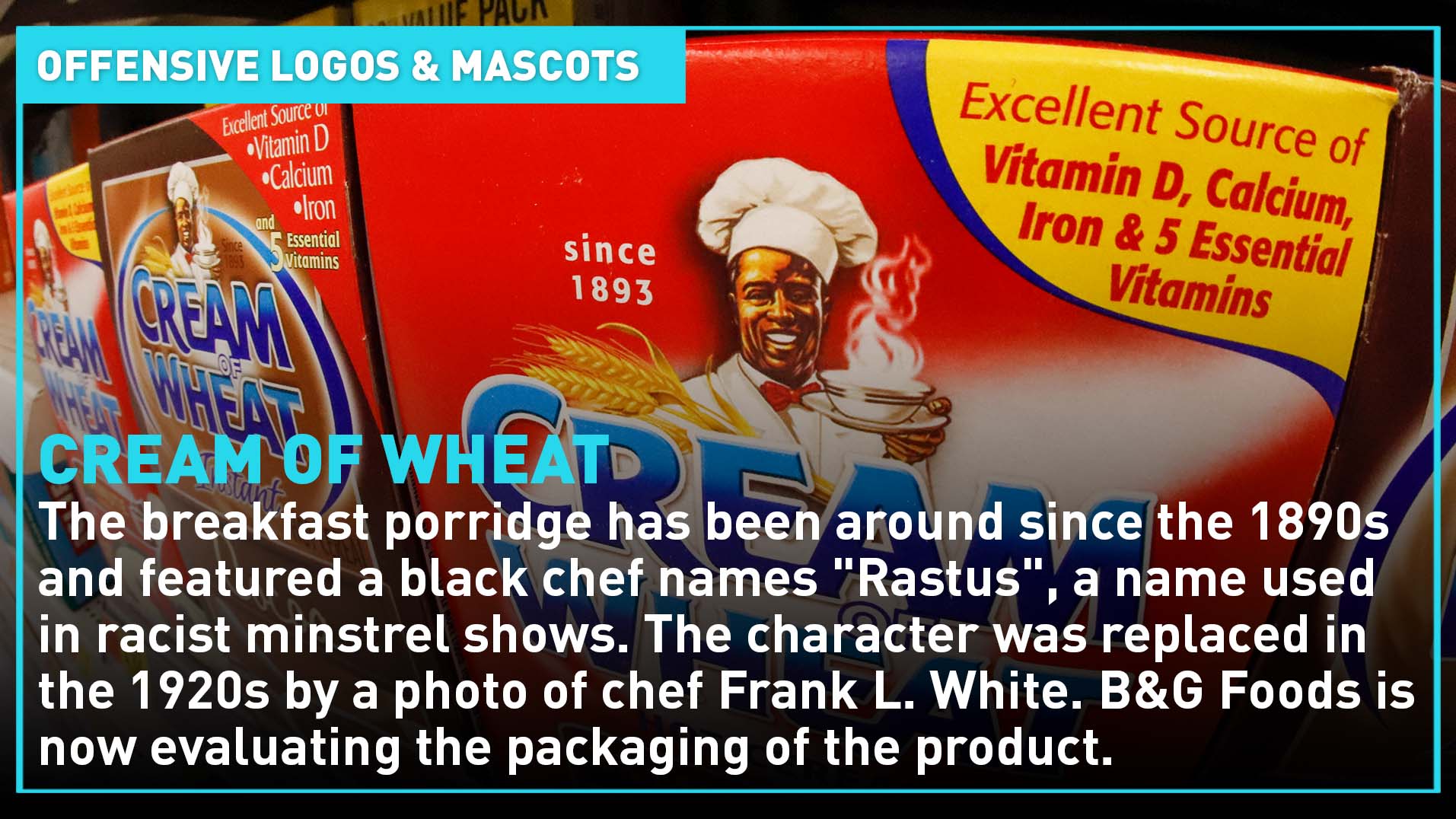
This breakfast porridge product has been around since the 1890s and has featured a black chef names “Rastus”, a name that was used in racist minstrel shows of the time. The character was replaced in the 1920s by a photo of chef Frank L. White. Parent Company B&G Foods has said that they are evaluating the packaging of the product.
Mrs. Butterworth
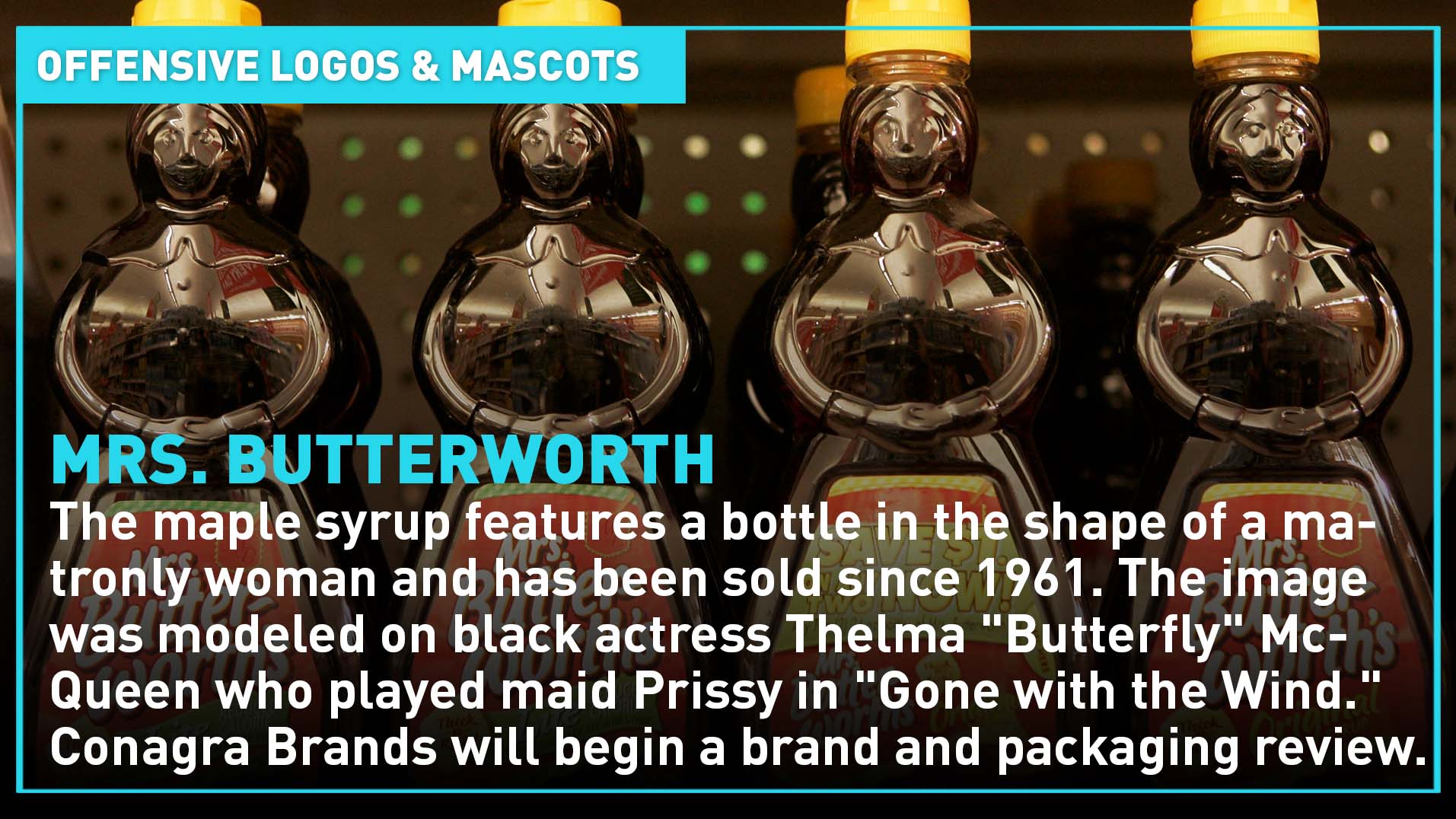
This American brand maple syrup features a bottle in the shape of a matronly woman and has been sold since 1961. The image was modeled on black actress Thelma “Butterfly” McQueen who played maid Prissy in the film “Gone with the Wind.” Conagra Brands, which owns brand said it will begin a brand and packaging review.
University of Virginia
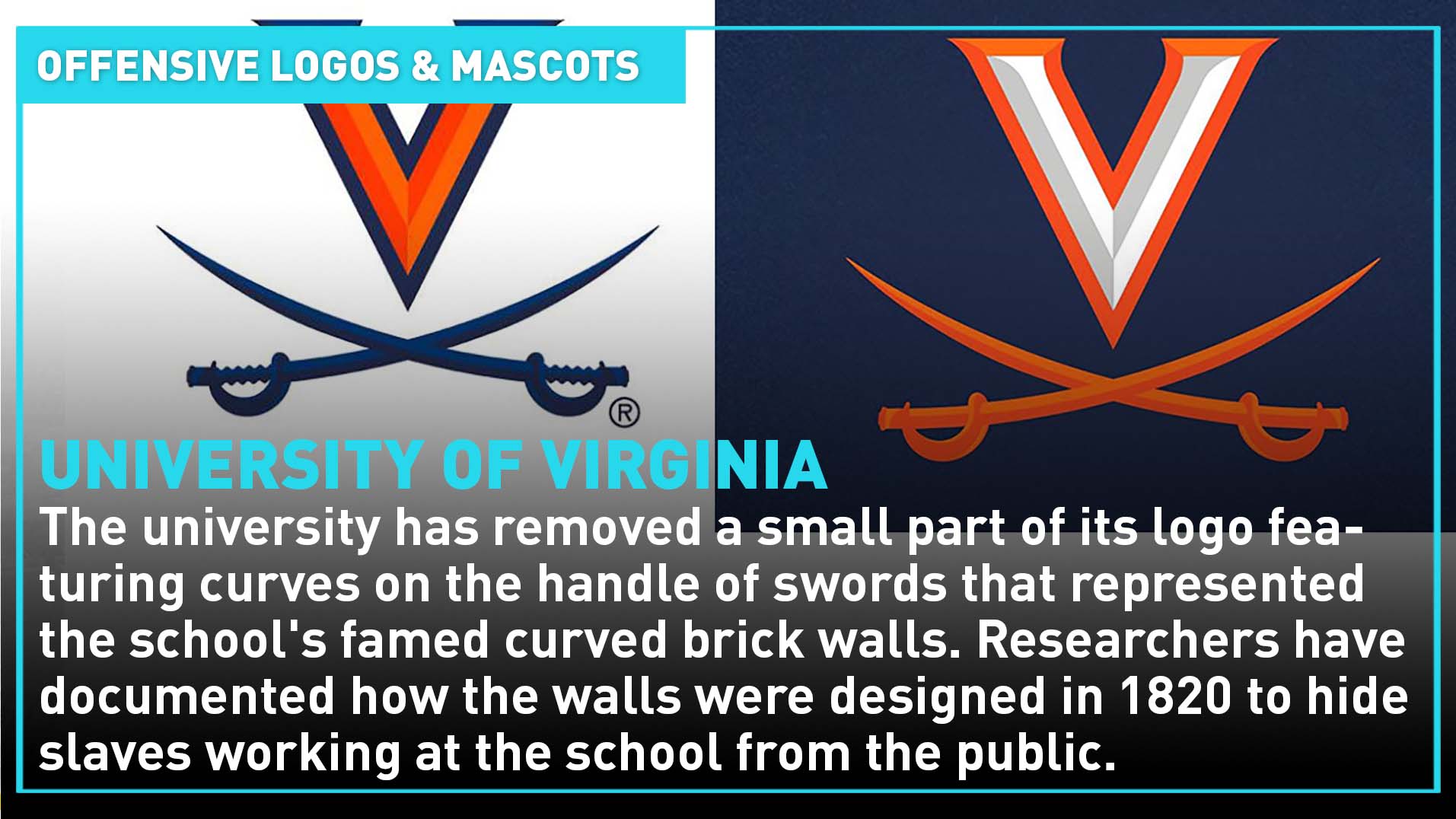
This university has removed a small part of its logo featuring curves on the handle of a sword that represented the school’s famed curved brick walls. Researchers have documented how the walls were designed in 1820 to hide slaves working at the school from the public.
Land O’Lakes
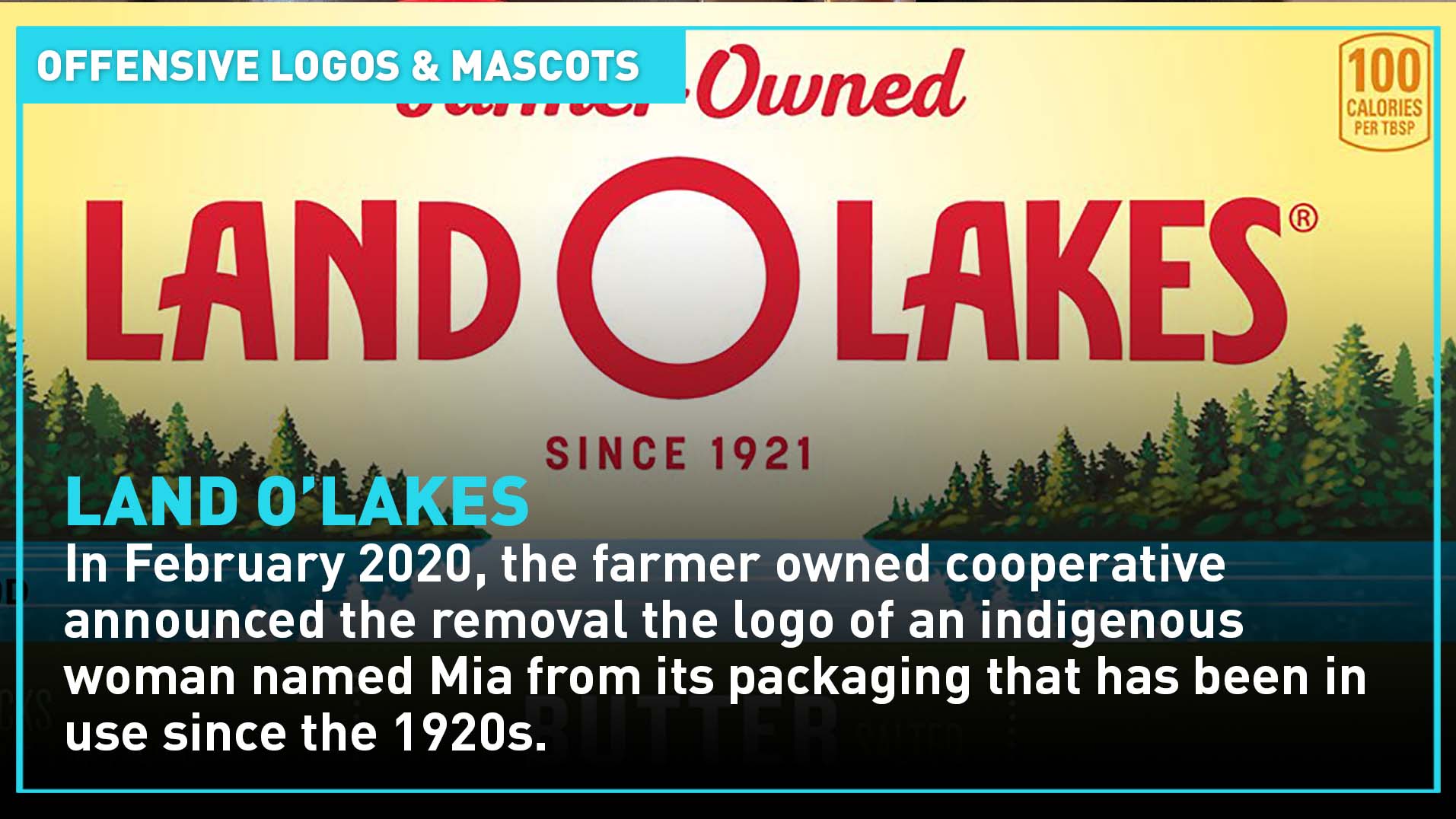
In February 2020, this farmer owned cooperative announced the removal the logo of an indigenous woman named Mia from its packaging that has been in use since the 1920s.
Eskimo Pie
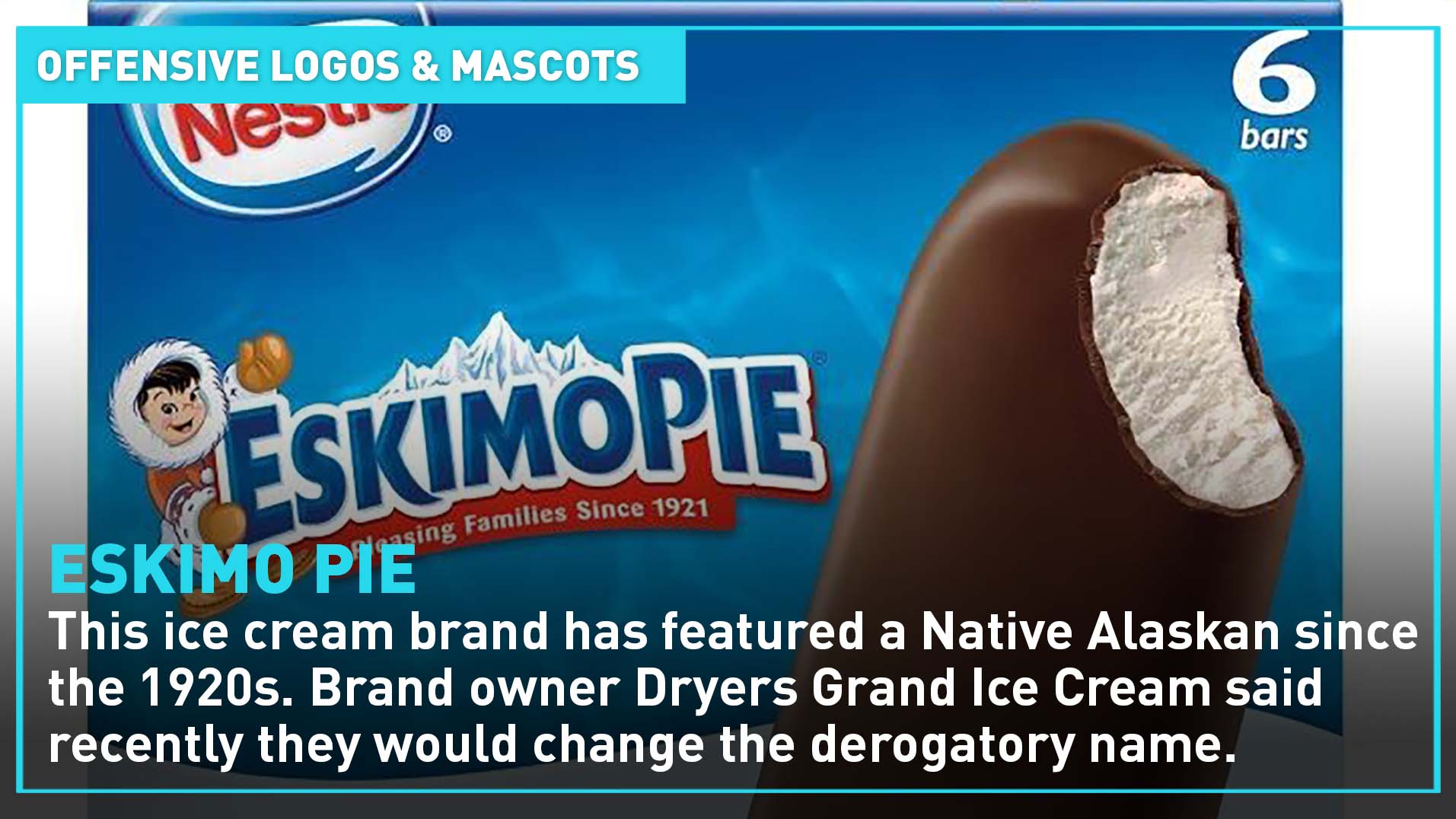
This ice cream brand has featured a Native Alaskan since the 1920s. Many native Alaskans have found offensive. Brand owner Dryers Grand Ice Cream said they would change the derogatory name.
WHAT HASN’T CHANGED
Miss Chiquita
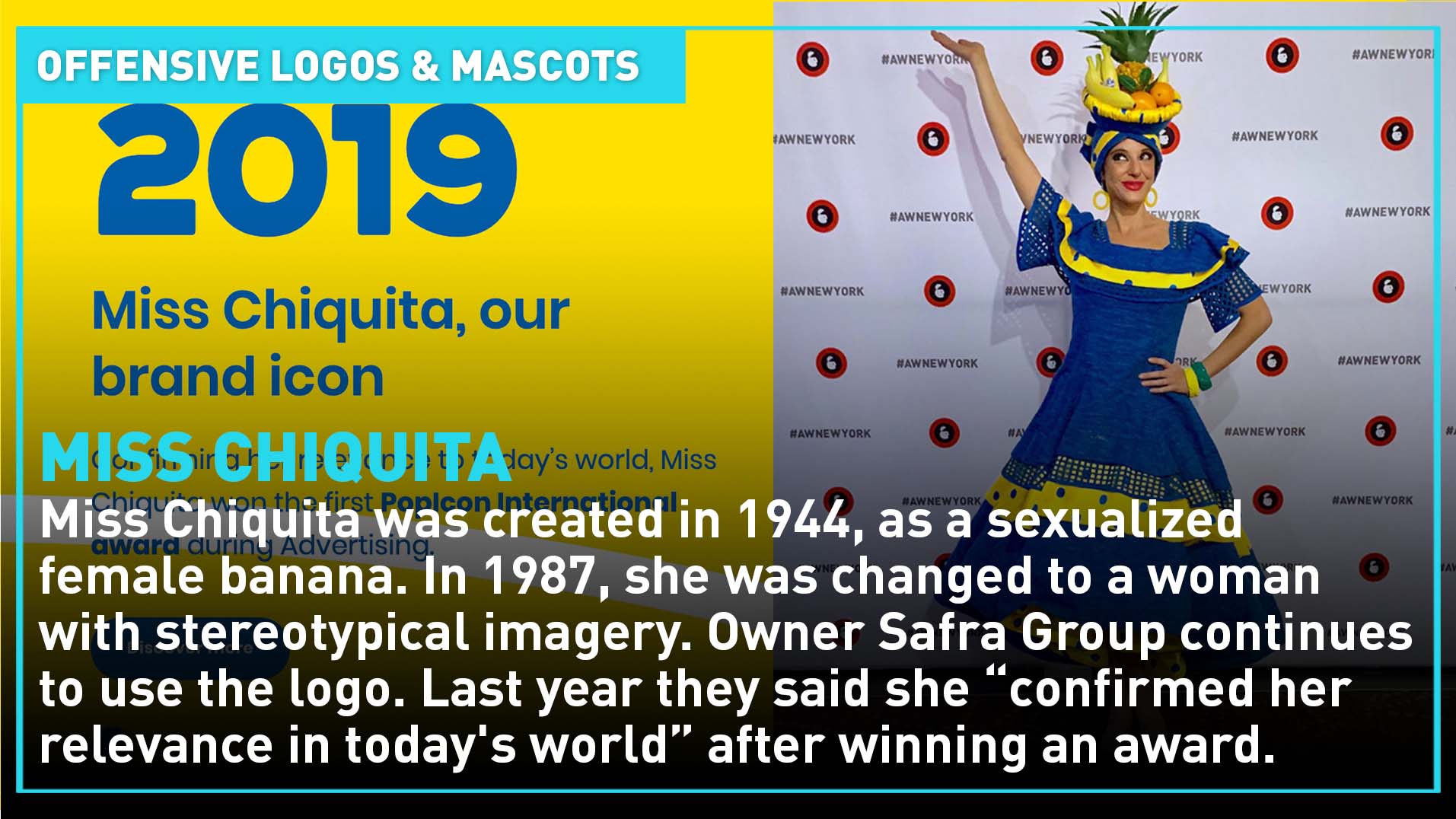
The company was founded in 1899 by the United Fruit Company but Miss Chiquita wasn’t created until 1944, originally as a sexualized female banana. In 1987, she became a human woman with stereotypical imagery. Current owner Safra Group continues to use the logo even wrote in 2019 that Miss Chiquita is a brand icon that “confirmed her relevance in today’s world” after winning the first Pop Icon International Achievement award.
Washington Redskins
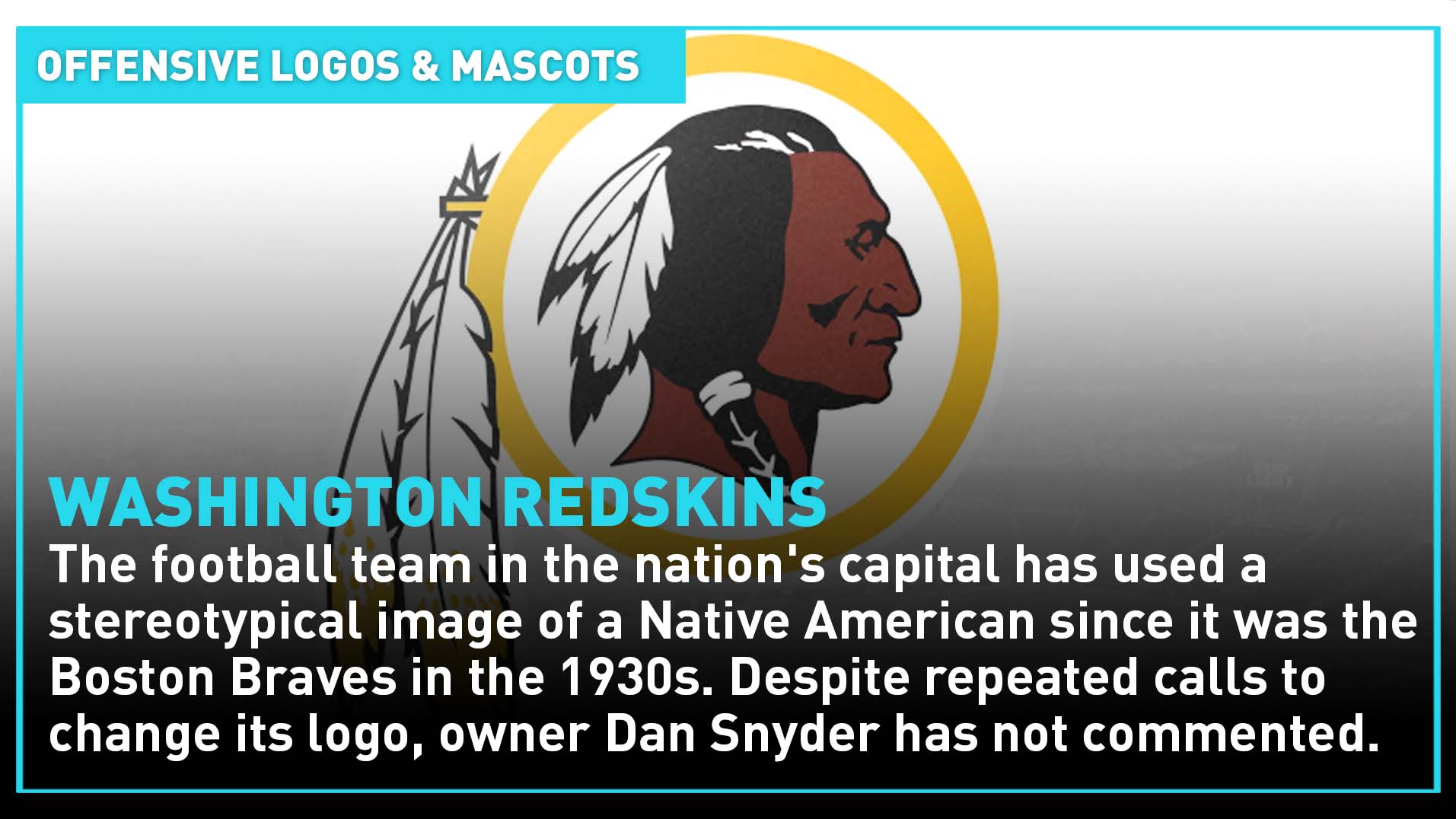
This football team in the nation’s capital has used a stereotypical image of a Native American since originated as the Boston Braves in the 1930s. Despite repeated calls for the team to change its logo, owner Dan Snyder has not provided any comments.
 CGTN America
CGTN America
